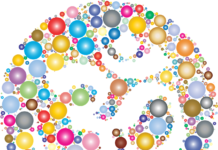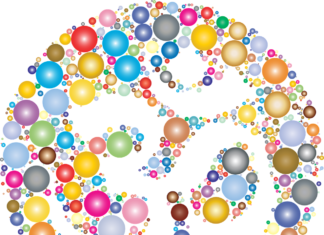Psyllium, also known as Plantago psyllium or Plantago ovata, is a popular herbal remedy and dietary supplement derived from the seeds of the Plantago plant. It has been used for centuries in traditional medicine, particularly in India and other parts of the Indian subcontinent. Psyllium is renowned for its exceptional soluble fiber content, making it a valuable component for digestive health and numerous other therapeutic applications.
The psyllium plant belongs to the Plantaginaceae family and is predominantly grown in regions with a dry and arid climate. The seeds, which are the key component used in various medicinal and commercial products, are tiny, odorless, and tasteless. These seeds have long been recognized for their potent medicinal properties, and they are often processed to create different forms such as powders, capsules, granules, and husks, to cater to various therapeutic and dietary requirements.
The soluble fiber found in psyllium is the primary reason for its widespread use and acclaim. When the seeds come into contact with water, they swell up and form a gel-like substance, which is rich in soluble fiber. This unique characteristic has made psyllium a sought-after natural remedy for a range of health conditions, particularly those related to the digestive system. Psyllium husk is commonly used as a gentle and effective laxative to alleviate constipation and promote regular bowel movements. It works by increasing the bulk and softness of stools, easing their passage through the intestinal tract. Moreover, the gel-forming property of psyllium helps in soothing irritated bowel walls and reducing discomfort associated with certain digestive disorders like irritable bowel syndrome (IBS).
Beyond its role in digestive health, psyllium has garnered attention for its potential to help manage cholesterol levels. The soluble fiber in psyllium binds to cholesterol in the digestive tract, preventing its absorption into the bloodstream. Regular consumption of psyllium has been linked to a modest reduction in low-density lipoprotein (LDL) cholesterol levels, commonly referred to as “bad cholesterol.” This cholesterol-lowering effect could have significant implications for cardiovascular health, as high LDL cholesterol is a known risk factor for heart disease and other cardiovascular conditions.
Another notable application of psyllium is in managing blood sugar levels. The soluble fiber in psyllium can slow down the absorption of glucose, thereby helping to regulate blood sugar spikes after meals. This property may be particularly beneficial for individuals with type 2 diabetes or those at risk of developing the condition. However, it’s essential to note that psyllium is not a substitute for medical treatment, and individuals with diabetes should consult their healthcare providers for proper management.
Psyllium’s ability to absorb water and form a gel-like substance has led to its inclusion in many weight management products. When consumed before meals, psyllium can create a feeling of fullness, potentially reducing overall food intake. This satiating effect may aid in weight loss or weight maintenance efforts by promoting portion control and reducing calorie consumption.
Apart from its significance in digestive health and metabolic well-being, psyllium has also demonstrated potential in addressing certain skin conditions. The soothing and anti-inflammatory properties of psyllium may help alleviate itching, irritation, and redness associated with conditions like eczema or psoriasis when applied topically. Additionally, the gel-forming quality of psyllium can create a protective barrier on the skin, enhancing moisture retention and supporting the skin’s natural healing processes.
The benefits of psyllium extend beyond human health, as it has practical applications in various industrial sectors as well. Its binding and stabilizing properties have found uses in the food industry, particularly in gluten-free baking, where psyllium can mimic the binding effects of gluten. In the pharmaceutical sector, psyllium is commonly employed in the production of capsules and tablets as a disintegrant, helping them break down and release their contents in the digestive system effectively. Moreover, psyllium is an essential component in the creation of certain cosmetics and personal care products.
However, despite its numerous benefits, psyllium may not be suitable for everyone, and some individuals may experience adverse reactions. Due to its high fiber content, consuming too much psyllium without adequate hydration can lead to bloating, gas, and even gastrointestinal blockages. Therefore, it is crucial to follow recommended dosages and drink plenty of water when taking psyllium supplements. Additionally, individuals with certain medical conditions, such as swallowing difficulties, esophageal strictures, or gastrointestinal disorders, should exercise caution and seek medical advice before using psyllium.
In conclusion, psyllium is a remarkable natural remedy with a rich history of traditional use and a broad spectrum of modern applications. Its soluble fiber content and gel-forming properties make it an excellent aid for digestive health, cholesterol management, blood sugar regulation, and weight management. Moreover, its gentle and soothing qualities have shown promise in addressing certain skin conditions. With its diverse uses in the food, pharmaceutical, and cosmetic industries, psyllium continues to hold immense value as a versatile and beneficial plant-based resource. However, as with any supplement or herbal remedy, it is essential to use psyllium responsibly and under the guidance of healthcare professionals, especially for those with pre-existing medical conditions or concerns. Overall, psyllium stands as a shining example of nature’s gift to human well-being and continues to be an invaluable asset in promoting overall health and wellness.
Soluble Fiber Content:
Psyllium is rich in soluble fiber, which forms a gel-like substance when combined with water, aiding in digestive health and promoting regular bowel movements.
Laxative Effect:
Psyllium husk acts as a gentle and effective laxative, easing constipation and providing relief from gastrointestinal discomfort.
Cholesterol Management:
The soluble fiber in psyllium binds to cholesterol in the digestive tract, potentially lowering LDL cholesterol levels and promoting cardiovascular health.
Blood Sugar Regulation:
Psyllium’s ability to slow down glucose absorption can help regulate blood sugar levels, making it beneficial for individuals with diabetes or at risk of developing the condition.
Weight Management Support:
When consumed before meals, psyllium creates a feeling of fullness, aiding in weight management by promoting portion control and reducing calorie intake.
Skin Soothing Properties:
Psyllium’s anti-inflammatory and soothing qualities may help alleviate skin conditions such as eczema and psoriasis when applied topically.
Gluten-Free Baking:
Psyllium is utilized in gluten-free baking as it can mimic the binding effects of gluten, helping to improve the texture of gluten-free baked goods.
Pharmaceutical Applications:
In the pharmaceutical industry, psyllium is used as a disintegrant in capsules and tablets, ensuring their effective breakdown and release of contents in the digestive system.
Industrial Uses:
Psyllium’s binding and stabilizing properties find applications in the food, pharmaceutical, and cosmetic industries for various product formulations.
Ancient Herbal Remedy:
Psyllium has a long history of use in traditional medicine, particularly in India and other parts of the Indian subcontinent, making it a time-tested natural remedy for various health conditions.






















